Cross-Connection and Backflow Prevention Program
The City of West Columbia is charged with safeguarding the public water system under the State Primary Drinking Water Regulations. The Cross-Connection Control/Backflow Prevention program is a state-mandated program designed to protect the public’s drinking water from contamination by identifying and eliminating cross-connections.
A cross-connection is any temporary or permanent connection between a public water system or consumer’s potable (drinking) water system and any source or system containing non-potable water or other substances.
Each connection to our system, whether it is a residential home or a commercial business, presents an opportunity for non-potable water to enter the public water system.
To protect against this, the City of West Columbia has a service area-wide cross-connection and backflow prevention program that is administered by our Code Compliance Department.
YouTube video: What is backflow?
About our Cross Connection and Backflow Program
Our Code Compliance Department administers the City of West Columbia Cross-Connection and Backflow Program in accordance with our Cross-Connection Control Program Policy. This includes:
• Determining whether a customer must install a backflow prevention device, and if so, which type.
• Developing and maintaining specifications for installing backflow prevention assemblies.
• Maintaining records of all customer backflow preventers in our service area and annual backflow test results for each backflow.
Customers are responsible for installing a backflow preventer according to the City’s specifications and having the device tested annually by a SCDHEC-approved tester. Backflow preventers are part of a customer’s private plumbing system.
What is backflow?
A Backflow Preventer is a mechanical plumbing device installed in a plumbing system to prevent water from flowing backward. A properly installed, tested, and maintained backflow preventer at the service entrance to a building or property can reliably prevent the backflow of water of an unknown quality from flowing back into the community water system.
These systems must be inspected annually by an approved tester and after installation or repairs (Certified Backflow Inspectors and Testers for South Carolina). The inspector should submit a Field Test Report (Back Flow Device Test Report Form).
Important Documents
Certified Backflow Inspectors and Testers for South Carolina – July 2023
SCDHEC Approved Backflow Prevention Assemblies for South Carolina – 2022
Back Flow Device Test Report Form
Frequently Asked Questions
I received a letter saying my annual backflow test is due. What do I need to do?
Contact a Backflow Tester from our List of Approved Backflow Testers and schedule a test.
Provide a copy of the letter to your Tester. After completing the test, the Tester will submit the results to the City of West Columbia.
I’m a renter, why did I receive a letter from CWS about the backflow preventer?
Compliance with our backflow requirements is the responsibility of the water account holder. If you are renting a home or commercial space, your landlord or property management company may agree to take care of the backflow installation and/or annual testing, but it is ultimately the account holder’s responsibility.
I received a letter saying I need to install a backflow preventer. How do I do that?
We recommend contacting a licensed plumber. You can install it yourself, but it must be installed according to our specifications, and we will inspect it after installation.
If you hire someone to install it, provide him with a copy of the letter and installation guidelines enclosed in the letter.
Once it’s installed, you or the installer should contact us to request an inspection. If it passes inspection, the final step is to have it tested by a tester from our List of Approved Backflow Testers.
Why do backflow preventers have to be tested annually?
Backflow prevention assemblies have internal seals, springs, and moving parts that are susceptible to wear and failure. Annual testing ensures they are functioning properly and protecting our public water system.
Do Backflow Testers work for the City of West Columbia?
No, they are independent private contractors. The city of West Columbia does not install or test backflow preventers.
We do require backflow tests to be performed by Testers on our List of Approved Backflow Testers.
How do I know if I need to install a backflow preventer?
Residential customers are only required to install a backflow preventer if the home has an in-ground irrigation system or pool. It is the customer’s responsibility to notify us if an irrigation system or pool is installed.
Backflow requirements vary for commercial customers based on the business’s water use. Our staff reviews newly established commercial water accounts to assess the degree of backflow hazard and notifies businesses about backflow requirements.
What is backflow?
Backflow is the reversal of the normal flow of water. It’s caused by pressure differences and can allow contaminants from an irrigation system, boiler, or other sources to enter a home or building’s plumbing system or the public water supply.
Backflow prevention devices protect plumbing systems and our public water supply by preventing backflow.
What causes backflow?
A sudden drop in water pressure in our public system can cause backflow.
Backpressure can also cause backflow. Backpressure occurs when a building’s plumbing system has a higher pressure than the public water supply.
Both situations can allow water and contaminants from a private plumbing system to reverse flow into the public supply, potentially contaminating the water for other users. Backflow preventers keep this from happening.
What can I do to protect my home plumbing system from backflow?
Install a hose-bib vacuum breaker on each of your outside faucets. These devices will prevent water from being back-siphoned from a hose or irrigation system into your home’s plumbing.
Hose-bib vacuum breakers are inexpensive and available at hardware stores. They have been required by the Standard Plumbing Code since 1963.
A backflow preventer was already installed when I moved into this home/commercial space, but I don’t think I need it. What should I do?
Different customers present different backflow hazards, even at the same location. If your water use is different from the last customer, contact us to schedule an assessment.
I don’t use my irrigation system. Do I still have to test and maintain my backflow preventer?
As long as the irrigation system is connected to your plumbing system, the potential for backflow exists, and you must comply with all backflow requirements, including having it tested annually.
To eliminate these backflow requirements, the irrigation system must be physically disconnected from your plumbing system.
If your irrigation system is served by the same water service that serves your home or business, you can have the irrigation system cut and capped.
Once this is complete, contact us to schedule an inspection.
If your irrigation system is served by a separate irrigation meter, contact us to close the account and we will lock or remove the meter.
Program Contacts
Building Official/Public Utilities Coordinator
Martin “Marty” Taylor
PO Box 4044
West Columbia, SC 29171
Phone: (803) 791-1880 ext. 286
Fax: (803) 739-6231
mtaylor@westcolumbiasc.gov
Tyra Cunningham
Utilities Program Manager
PO Box 4044
West Columbia, SC 29171
Phone: (803) 939-8631
Fax: (803) 739-6231
The United States Environmental Protection Agency (EPA) and the South Carolina Department of Health and Environmental Control (SCDHEC) have established strict quality standards for drinking water. These standards are designed to protect consumers against disease-causing bacteria and other harmful substances. EPA requires public water systems to send their customers an annual report containing information about their drinking water quality and compliance with the standards.

